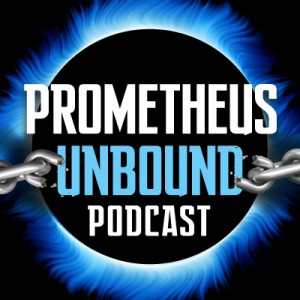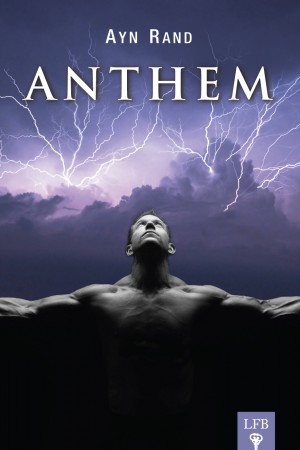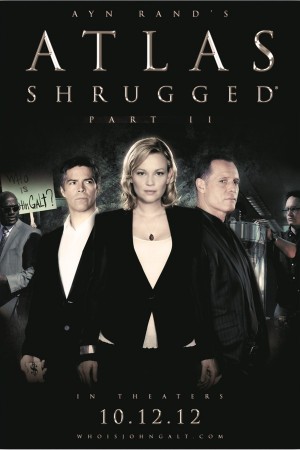
Tatiana Maslany as Alison, Helena, Sarah, Beth, Cosima, and Katja.
Orphan Black is a new science fiction television show produced by BBC America and Space, starring Canadian actress Tatiana Maslany. I recently discovered this series, the first season of which just finished airing in the beginning of June 2013, and I plowed through all 10 episodes in two days. It’s a smart, complex, often dark yet at times quite funny, and well-paced show with a continuous narrative arc that explores the issues of identity and intellectual property. There is fine acting all around but the two standouts are Tatiana Maslany, who plays many roles on the show for which she deservedly won a Critics’ Choice Television Award for Best Actress in a Drama Series, and Jordan Gavaris, who plays the foster brother of one of Maslany’s characters.
Minor spoilers follow, but everything I mention is revealed in the first episode or featured prominently in the official publicity for the show.
The science fiction element of the show is pretty low key. You won’t see much in the way of futuristic technology in this series. Instead, the plot revolves around the controversial subject of human cloning and the early stages of body modification and genetic engineering. Who are we if we are not biologically unique, if there are others out there who are genetically identical to us? How much would our experiences and personal choices shape who we become despite this? What would you do if you encountered to your surprise not one but two or three or more other people who look exactly like you? What is it that makes us human? These are some of the questions explored in Orphan Black.
The series begins by introducing us to the main character of the show, Sarah Manning, played by Maslany. Sarah is an orphan, born in Great Britain, raised by a foster mother, and moved to Canada at an early age. Now a young woman, we meet her trying to escape a wild life of crime, drugs, and an abusive boyfriend. Sarah aims to get her life back together, reclaim custody of her daughter Kira from her foster mother Mrs. S, and scrounge up enough money to make a new life somewhere for herself, her daughter, and her foster brother Felix (played by Gavaris).
[continue reading…]
Help Promote Prometheus Unbound by Sharing this Post

In episode three of the Prometheus Unbound Podcast, Matthew and I have a fantastic interview with the wonderful Jeffrey Tucker, editor of Laissez Faire Books. It’s a long one, about an hour and fifteen minutes, and we knew you’d be eager to listen to Jeffrey, so we wasted no time with chit-chat and got right down to business. We covered a number of topics ranging from LFB, intellectual property, and Jeffrey’s favorite fiction.
We started off by asking Jeffrey Tucker what it’s been like working for a commercial publisher and bookseller after having worked for a nonprofit educational institution, the Ludwig von Mises Institute, where he was editorial vice president, for so long.
Then we went on to talk about the business model of Laissez Faire Books and the role of the publisher in the digital age as a curator and service provider (curation as a service); the compatibility of open source and business; intellectual property; the nature of competition; how many entrepreneurs and businesses misidentify the source of their profitability and don’t understand why people buy their goods or services; how copyright has held back the publishing industry; and markets as institutions of teaching and learning.
[continue reading…]
Help Promote Prometheus Unbound by Sharing this Post

In episode two of the Prometheus Unbound Podcast, Matthew and I (Geoffrey) discuss libertarian speculative fiction and introduce the Book of the Month, Today’s Tomorrows Writing Prompt, and Fiction Forecasts segments of the show.
We break the ice with some brief chit-chat about what we’ve been reading before seguing into our discussion of libertarian spec fic. The Book of the Month is Coyote by Allen Steele. In Today’s Tomorrows Writing Prompt, we turn a speculative eye on the very real possibility of an intellectual-property dystopia. And in Fiction Forecasts, we talk about upcoming (at the time of recording) television shows, movies, and books.
What We’ve Been Reading
Libertarian Speculative Fiction
We covered a lot of ground in our discussion of libertarian spec fic, but we really only scratched the surface of this broad, deep, and no doubt controversial topic. I’m sure we’ll be revisiting many of the stories and issues we covered, and many more besides, in future episodes. So subscribe and stay tuned!
Here’s a brief rundown of some of the things we covered: what qualifies a work of fiction as libertarian; libertarian themes in science fiction and fantasy; why they seem to be more common in science fiction and why libertarians seem to favor this genre; our favorite works of libertarian spec fic; the Prometheus Awards; and probably more that I’m forgetting as I write this.
[continue reading…]
Help Promote Prometheus Unbound by Sharing this Post

At long last, here is the first episode of our new, original podcast.
First, Matthew and I break the ice by briefly talking about what we’ve been reading recently. I had just finished Kameron Hurley’s debut novel God’s War. Overall, I think it’s a good effort with an interesting story and world-building but is not without its flaws. Matthew had recently finished Live Free or Die by John Ringo. It was a 2011 Prometheus Award finalist, not a winner as I mistakenly thought while recording the podcast and, according to Matthew, didn’t deserve to be.
Our interview with Stephan takes up most of the episode. It’s around 53 minutes long and starts 9:40 minutes in. For those who don’t already know him, Stephan Kinsella is a patent attorney and prominent libertarian legal scholar. He is best known for his opposition to intellectual property.
We invited Stephan on the show to discuss the problems of intellectual property and piracy in the Digital Age. But first we had to ask him about his love of science fiction and fantasy. We got him to mention some of his favorite authors and books (see below for a list), and we even talked about the Hobbit movie for a bit.
Then, at about 23:15 in, we dove into the meat of the interview. Stephan explained the historical origin of copyright (censorship) and patents (government grants of monopoly privilege, which is what copyright is now too really), how intellectual property has shaped and distorted the film and publishing industries, including Hollywood’s move to California to avoid patent disputes, and why reform is not enough. We also discussed how the Digital Age — the age of the internet, smartphone, ereader, and globalization — is making the evils of copyright and patents more obvious and acute while at the same time undermining traditional business models built around intellectual property. And finally, we explore ways artistic creators might earn a living in a world without intellectual property laws.
[continue reading…]
Help Promote Prometheus Unbound by Sharing this Post

I’m pleased to see Laissez Faire Books publishing a new edition of this book. I may be unusual in this, but Anthem happens to be my favorite of Rand’s four major works of fiction. It is pithy, pared down to essentials, and more poetic. This guest editorial was originally published as the editorial preface of the new edition. — GAP

“The author does not understand socialism,” read the letter from MacMillan in reply to the submission of Ayn Rand’s novella, Anthem. They turned it down. Actually, the publisher didn’t understand socialism. Hardly anyone did in 1937, when this book was written. Rand, however, did understand socialism. She understood it so well that she knew it would result in the opposite of what it promised and that its proponents would eventually come to embrace its grim reality, rather than repudiate the system of thought.
In many ways, this book is one of the best dystopian novels ever written because it puts the central focus on the key failing of socialism: its opposition to progress. How is that possible given that progress is a central slogan in socialist thinking? The problem is that by collectivizing private property, socialism removes the machinery of progress itself. It abolishes prices and profits and calculation and the incentive to create. It puts a premium on political control, and politicians resent the revolutionary implications of entrepreneurship. Therefore, a consistently socialist society would not only be poor and backward; it would revel in those features and call them the goal.
Think about it. This was the 1930s, long before the environmental movement and long before the primitivist streak in socialist thinking was to emerge as an outright agenda to be imposed by force. But as a child in the old Soviet Union, Rand had seen it in action. She had seen how entrepreneurship and creativity had to be sacrificed for the collective, and how this drove civilization straight into the ground. A totalitarian society would not be a world with amazing technology and flying cars, but would exist only at a subsistence level. And it would try to stay that way.
[continue reading…]
Help Promote Prometheus Unbound by Sharing this Post

If you tried to watch the livestream of the Hugo Awards event at Chicon 7 (Worldcon) last night, you were in for a rude surprise. The feed cut off, never to be restored, just as Neil Gaiman was giving his acceptance speech. Why? i09 has the scoop, but fingers the wrong culprit.

What happened was that the Hugo Awards showed clips from some Doctor Who episodes and a Community episode prior to Gaiman’s speech. UStream’s copyright enforcement robots detected this and shut down the feed, as they had been programmed to do. io9’s editor-in-chief, Annalee Newitz, lays the blame on UStream. Its copyright enforcement robots are too dumb to realize that not only did the Hugo Awards have permission to show those clips but that, even if they had not, showing them would have been fair use anyway.
Is it UStream’s fault that its copyright enforcement robots are unable to distinguish between illicit copyrighted content and copyrighted content the user has permission or a fair-use defense for airing? Should UStream spend more money on smarter robots? if it’s even possible to code smart enough robots to do this? I don’t think so.
[continue reading…]
Help Promote Prometheus Unbound by Sharing this Post


Reason.com has had some interesting posts recently.
One is on the subject of fan fiction vs. copyright. Does fan fiction count as a copyright violation? What should authors think or do about it? My response to the first question is: Who cares? Copyright is an illegitimate government grant of monopoly privilege that gives people legal ownership over that which cannot really be property, ideas, and which cannot be enforced without infringing on the prior real property rights (in one’s body and physical objects) of others. My response to the second question is: Authors should embrace fan fiction as community-building and free advertising. Fighting fan fiction only makes you a dick, a criminal (in my view) dick if you sue.
Anyway, now that I’ve worked that rant out of my system, check out the post Fan Fiction vs. Copyright – Q&A with Rebecca Tushnet and watch the interview below. Tushnet is “a member of the Organization for Transformative Works, Tushnet works to defend fan fiction creators caught in the legal debate between protected intellectual property and fair use.” I’ve previously discussed how Angry Robot Books is embracing fan fiction, if not as much as we libertarians and fiction fans would like.
[continue reading…]
Help Promote Prometheus Unbound by Sharing this Post















